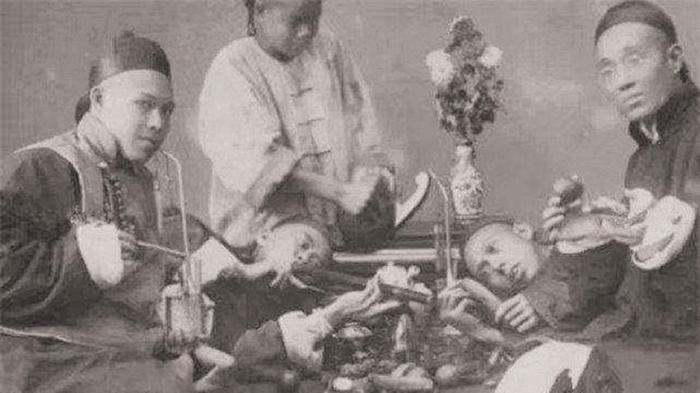In a small place, it is relatively easy to govern, and the management agency is very simple. But once the territory is expanded, it is more troublesome to manage. For example, during the Zhou Dynasty, due to the immaturity of various conditions, the princes in various places basically enjoyed a high degree of autonomy, which directly led to the situation that the princes were stronger than the Son of Heaven.

In order to solve this problem, a new management system, the county system, appeared. This system has always accompanied China's feudal society and has played a great leading role in China's current administrative organs. When the Han people established a hierarchical administrative institution to manage a huge land, some fishing and hunting peoples were not idle, and established a corresponding management system, of which the representative one was the Eight Flags system of the Qing Dynasty.
The Eight Flags system originated from the hunting activities of the Jurchens, hunting is about mutual cooperation, the entire hunting team is called Niulu, the commander becomes the Niulu Erzhen, and the Jurchens also use this team form in later foreign wars. Because the number of people mobilized in the war was relatively large, they combined a lot of cattle records together, using the flag as the command, to become a larger combat unit, called "Gushan", called "flag" in Chinese.
Later, due to the difference, the different colors of flags used in each Gushan were distinguished, and finally evolved into the four flags of yellow, white, red and blue, until the forty-third year of the Ming Wanli calendar, Nurhaci had swallowed up many tribes, and the military strength reached 50,000 or 60,000, so he added a new four banners in order to manage, at this time, the eight flags system was officially formed. The eight flags system was implemented in the army, and the eight flags system was also used in life to manage the Manchus.
After the Manchus entered Shanhaiguan and occupied the original Ming Dynasty, the Manchus became rulers. You know, the rulers of ancient times were privileged, and after the Manchus entered the pass, they were also privileged, not only had it, but they were also very large.
After the Manchus secured their power, they engaged in a land enclosure movement. It was not the same as the British one, but in essence, it was all to drive out the peasants and seize the land. The Manchus ran out of a range with horses within a specified period of time on a large area of land, and the land within this range was all horse runners, and the oppression of the Han chinese by this method was too great, and it was abolished soon after.
Even so, there is still a lot of land under the manchu name, is it their own? No, it's the Han people. After the Manchus entered the customs, the tax reduction policy for the children of the Eight Banners was adopted, and all the Han people parked their land under the manchus' names, evaded taxes, and of course had to pay taxes to the Manchus themselves.
In addition, the Manchus were slightly higher in status than the Han Chinese. For example, the officials of the Qing Dynasty were basically Manchus, and there were very few Hanchen who could become grand officials, and there was only one Hanchen who deserved to enjoy the Taimiao Temple. Moreover, when Hanchen saw Manchu, he had to perform a salute, and he also wanted luggage at the same level, but Manchu did not use it.
Moreover, in the judgment and punishment of the law, the Manchus and the Han people are not the same, and the Han people who violate the law are all dealt with in accordance with the "Great Qing Law" and will not be tolerated. However, when the Manchus broke the law, the officials could not deal with it without authorization, and they had to consult with the local Manchu organization, and the punishment was relatively light. Exile was generally changed to wearing shackles and taking custody, the death penalty was also changed to imprisonment, and very few Manchus were executed. However, it is also this eight-flag system that makes the original fierce eight-flag soldiers lose their combat effectiveness, and in the late Qing Dynasty, they were weak and unremitting, and defending the family and defending the country was nonsense.
As the saying goes, "Eight banners of success and eight banners of defeat", the Manchu Qing established troops with the eight flags system, formed extraordinary combat effectiveness, and successfully established political power. But because of the eight flags system, he lost the country and fell into infamy.